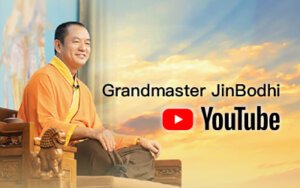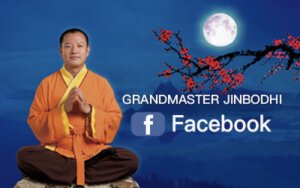Offering is a practice where one, with a devout heart, sincerely pays respect and expresses gratitude to deities, hoping for protection. Buddhism, with its core principle of compassion and benefiting all beings, encourages the practice of offering.
Why is offering so important? What are the merits of offering, and what does it mean to offer to Buddha statues?
Read on to explore offering from a Buddhist perspective. Learn the meaning of offering, the types of offering, the merits associated with the practice, and the deeper significance behind it.
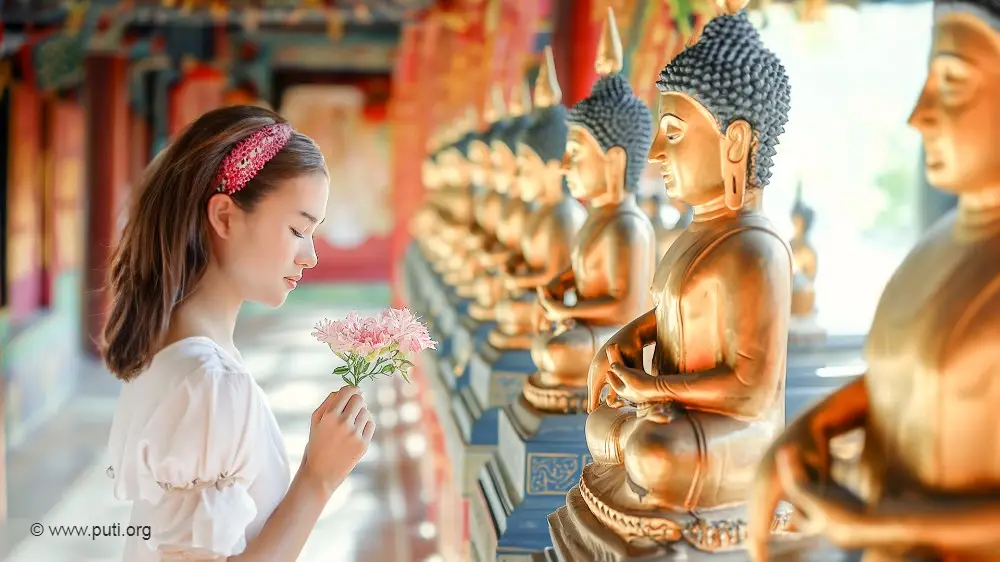
Understanding the Meaning of Offering: Dispelling Misconceptions and Myths
Offering generally refers to the unconditional giving of one’s resources to others, or to the deities or other religious figures one believes in. It is a way to express compassion, respect, and gratitude.
Although this practice exists in many religions and cultures, its true significance is often overlooked or misunderstood. In Buddhism, offering holds a place of great importance, its meaning profound.
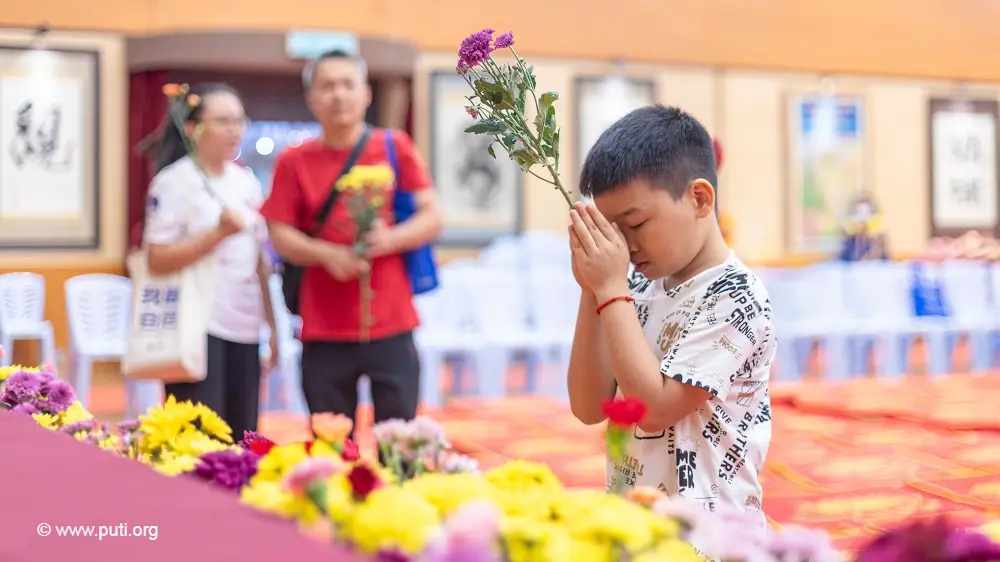
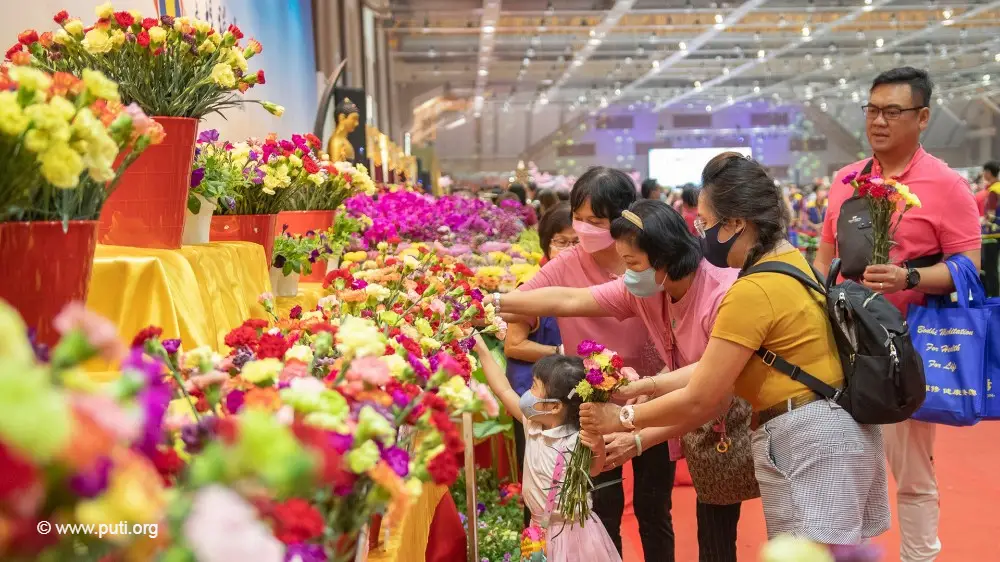
Buddhism makes no distinction regarding the objects of offering. For instance, in the Ten Great Vows of Samantabhadra, the third vow is to widely cultivate offerings; in the Six Perfections, the first is giving, which is equivalent to offering. Maitreya Bodhisattva even stated, “The essence of the dharma is simply the practice of offering.”
Since the dharma is established to benefit all beings, the most direct expression of it is offering material, wisdom, or anything that would ease people’s worries.
These three types of offerings encompass the Six Perfections of Buddhism. Therefore, offering is a crucial practice for Buddhists.
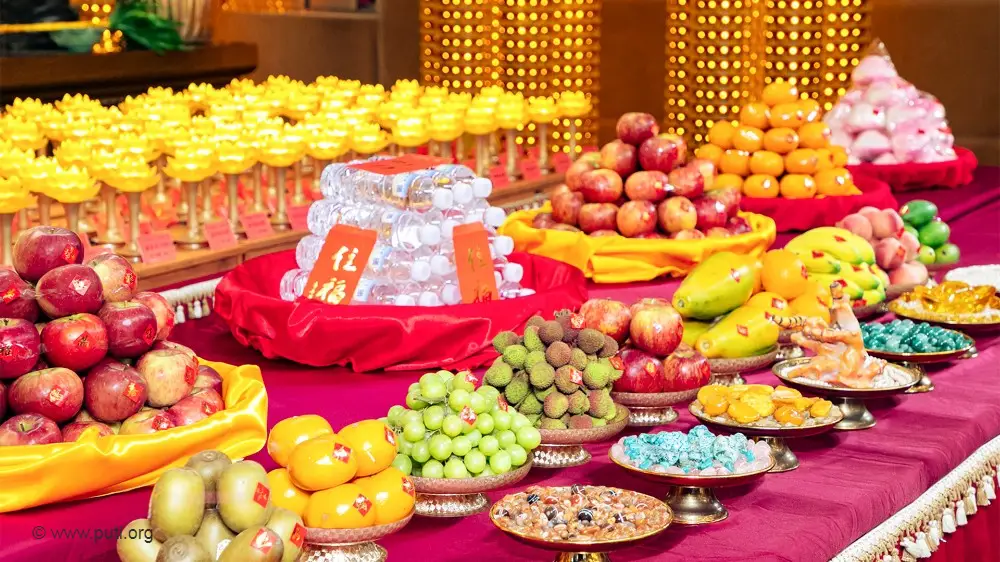
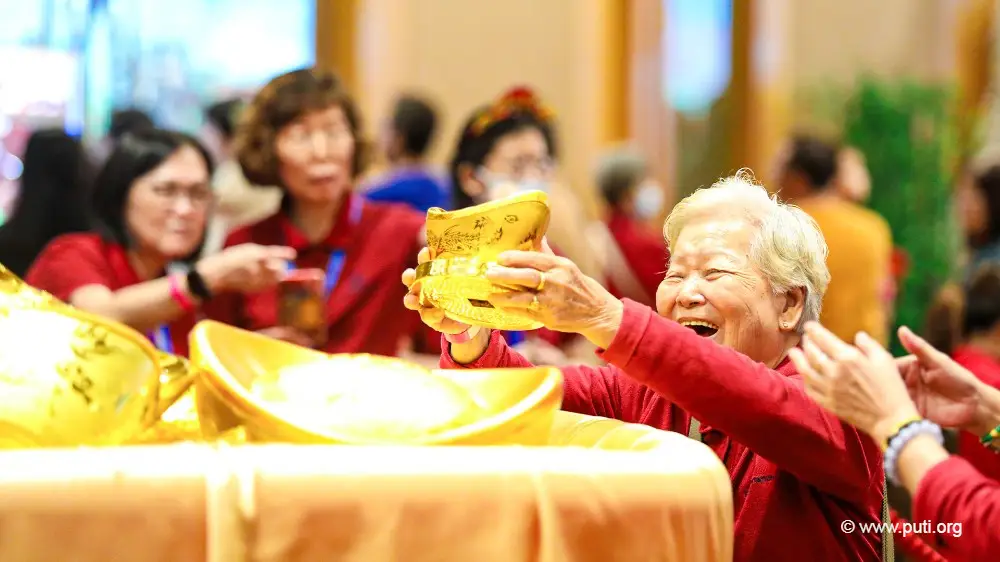
The significance of offering lies not in the recipient’s need for the offering, but in using the act of offering to eliminate one’s attachments and greed. The ultimate goal of a Buddhist practitioner is to attain buddhahood, which represents being in a state of selflessness, nonattachment, and purity, while impartially benefiting all beings.
Extensive practice of offering can help practitioners eliminate all self-centered attachments, cultivate compassion, and unlock Bodhicitta, while also widely benefiting all beings.
All of these contribute to accumulating the resources necessary for achieving enlightenment and buddhahood.
The Merits of Offering: The Supreme Merit of Offering With a Selfless Heart
Though offering is a spiritual practice, by the law of cause and effect, those who make offerings also receive various blessings and merits. As the saying goes, “You reap what you sow.” For example, offering wealth can lead to prosperity; offering food can ensure that one’s descendants always have food on the table; offering flowers can bring beauty and wisdom; offering lamps before the Buddha or gilding Buddha or Bodhisattva statues can help eliminate disasters and brighten the path ahead.
Therefore, offering has become a convenient method in Buddhism of benefiting sentient beings, and for the one who offers, it is an effective way to change one’s destiny.
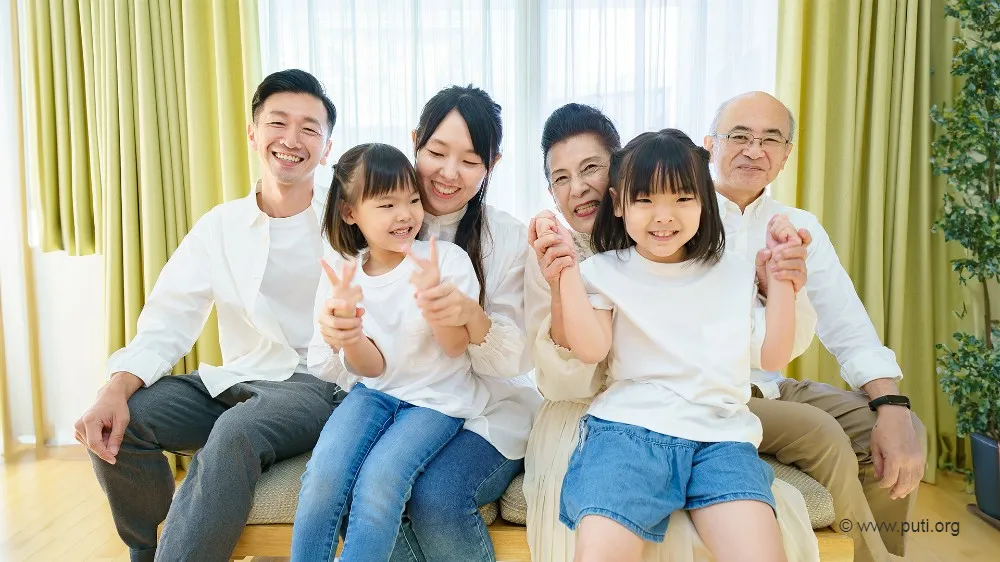
Grandmaster JinBodhi once shared the following story. During the Buddha’s time, there was a king who believed in Brahmanism and decreed that no citizen was allowed to make offerings to Buddhist practitioners, under threat of severe punishment. However, to connect with the people there, the Buddha and Ananda went to the city to ask for alms.
The people, upon seeing them, either closed their doors and hid or pretended not to see or hear them. From morning until afternoon, the Buddha and Ananda did not receive a single grain of rice or drop of water.
As they were about to reach the city gate and leave, an old maidservant was outside, cleaning up her master’s leftover food. Upon seeing the Buddha, the old woman was deeply moved by his presence and wanted to offer something to him, but she had nothing of value.
She respectfully placed her palms together and said to the Buddha, “Great Buddha, I wish to offer you the finest delicacies in the world, but I have nothing and am unable to fulfill this wish.”
Ananda said, “If you dare to offer, even the leftovers will be accepted as a gesture of your sincerity, and the Buddha will know your wish.”
Thus, the old woman shyly placed the leftover food into their alms bowls.
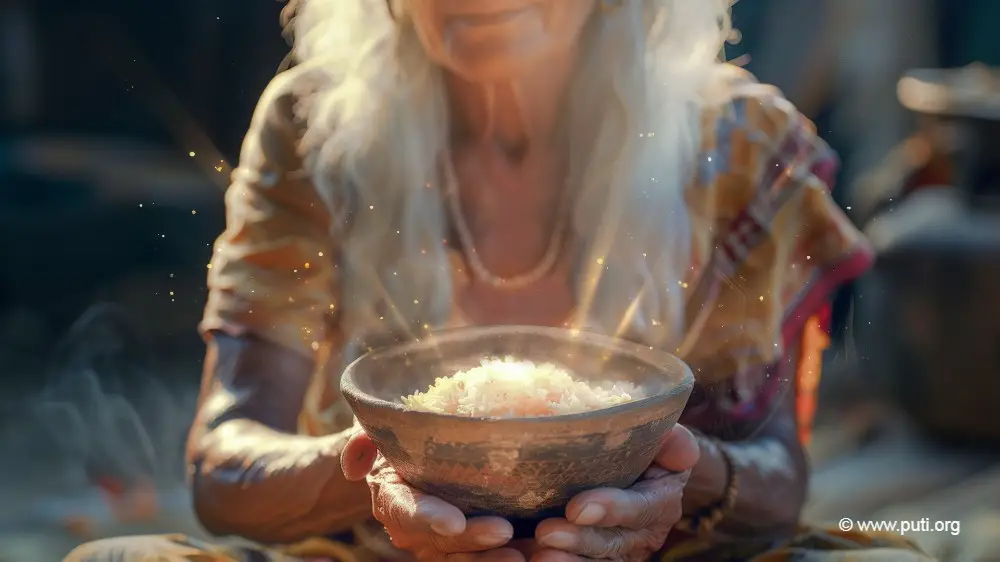
Seeing the old woman’s sincerity and pure heart, the Buddha praised her, saying, “This poor woman will enjoy the greatest happiness in the Heavens for 15 eons. After exhausting her Heavenly blessings, she will be reborn as a male, renounce the world, and eventually attain supreme enlightenment.”
Why did the offering of a bowl of leftovers earn such great merit? Grandmaster JinBodhi explained that, first, the old woman defied the king’s order to make her offering, risking severe punishment. Second, when she made the offering to the Buddha, her heart was selfless, filled only with the purest kindness and reverence. This is why she received immense blessings and merits.
This story illustrates that the merit of offering does not lie in the value of the offering itself but in the purity and sincerity of the offeror’s heart. If one can offer with a heart free of desires, the resulting merit will be boundless and immeasurable.
Learn More: A Poor Boy’s Ticket to Heaven!
Understanding the Types of Offerings: Offering With Sincerity and Reverence
In Buddhism, the dharma is based on the principle of equality, viewing all sentient beings as equal, without distinctions of wealth or status. Therefore, whether offering to deities, buddhas, or ordinary beings, it can all be considered as “offering.” However, in popular practice, to express reverence toward higher beings, people often refer to this practice as “offering above and giving below.”
In this context, “offering” typically refers to making offerings to deities, buddhas, and bodhisattvas, as well as to practitioners or monasteries.
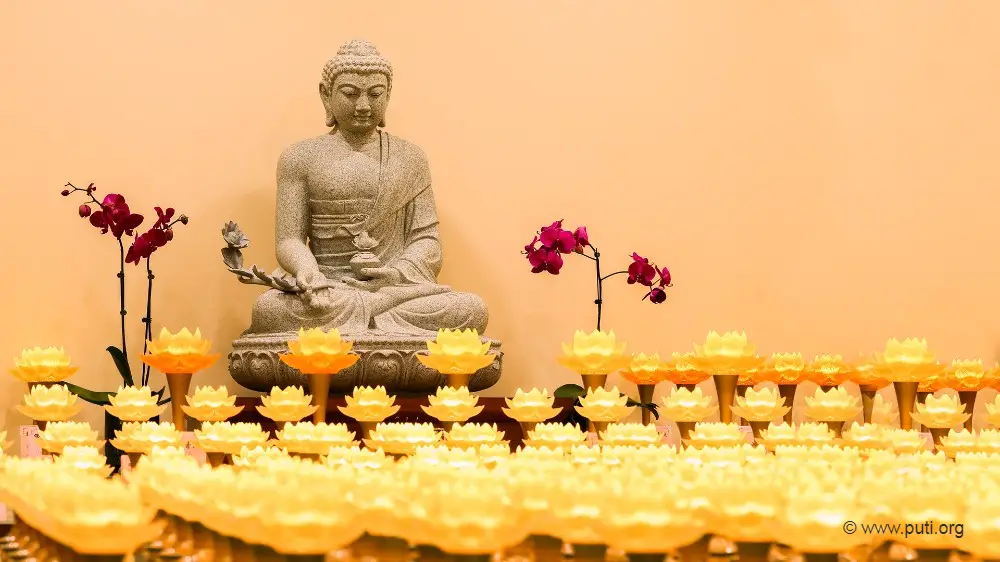
- There are many ways one can offer, with the most common being the offering of tangible items such as flowers, incense, lamps, fruits, food, clean water, jewelry, clothing, bedding, and so on. In addition, there are three major types of offerings: physical offerings, verbal offerings, and mental offerings.
- Physical Offerings: These include diligent practice, contributing to the establishment of cultivation centers, the gilding of Buddha statues, and engaging in activities that benefit sentient beings.
- Verbal Offerings: These include chanting mantras, reciting scriptures, offering songs, and using words of praise.
- Mental Offerings: These include maintaining a pure, respectful, and sincere heart, performing visualized offerings, and visualizing the forms of buddhas and bodhisattvas.
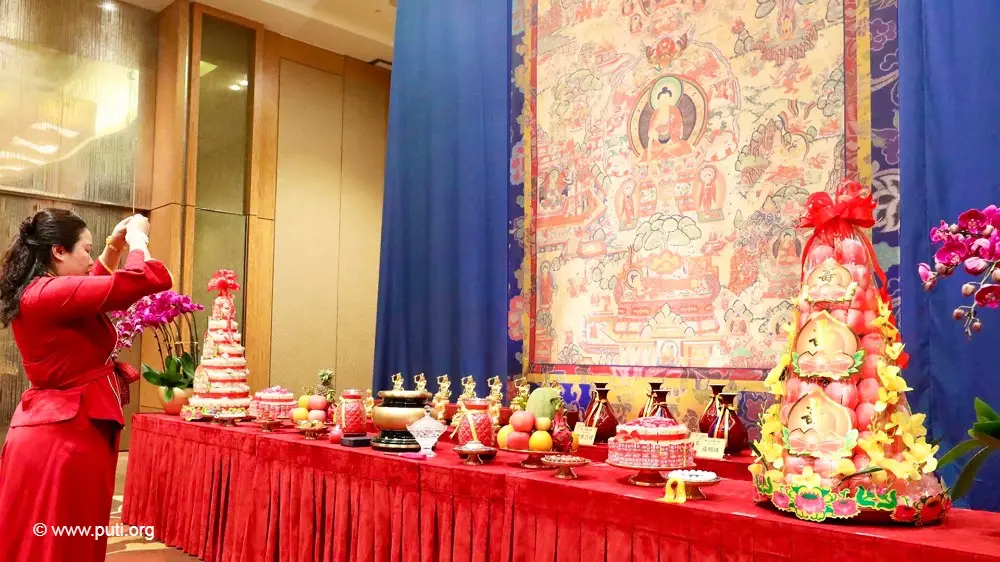
Each of these types of offerings is valuable in its own way. The offerings are not restricted to any specific items; the most important aspects are one’s sincerity and reverence. Grandmaster JinBodhi emphasizes that whether it is food, wealth, or treasures, anything you consider precious or beautiful can be an offering, because what you are truly offering is your most sincere heart and deepest reverence.
Learn More: What Makes Good Offerings?
Is Offering to Buddha Statues Idolatry? Why Do Buddhists Offer to Buddha Statues?
Is a Buddha statue the Buddha? The answer is both yes and no. In The Diamond Sutra, the Buddha stated, “If you see all forms as non-forms, you see the Tathagata.”
Buddhism is a religion that transcends form, so why does it encourage followers to offer to Buddha statues? As the Buddha also stated, “Even the dharma should be relinquished, more so the non-dharma.” Yet, the Buddha still taught his followers to take refuge in and practice the dharma to attain enlightenment and liberation.
Before attaining enlightenment, all forms can serve as aids in our practice. Practitioners need to rely on the tangible, the visible, and the conditioned to gradually enter the realms of the intangible, the invisible, and the unconditioned. This is akin to the Buddha’s analogy: If you want to cross a river, you need a boat; but once you reach the shore, the boat must be left behind.

If you choose to offer to a Buddha statue at home, seeing the perfect and dignified statue daily serves as a constant reminder that “I am a practitioner, and I must be mindful of my actions, speech, and thoughts.” It also encourages us to practice diligently, which includes prostrating before the Buddha, chanting, reciting mantras, and reading scriptures.
Practicing in front of a Buddha statue can make one feel as though the Buddha is watching and blessing them, leading to greater focus and sincerity. For true practitioners, a Buddha statue is not merely an image; it is a tool to aid in dharma practice, helping one to develop sincerity, pure faith, and compassion, thereby aligning oneself with the true Buddha.
Grandmaster JinBodhi has summarized some practical benefits of offering to Buddha statues, which are:
- Improving the energy field, protecting the home, and ensuring safety.
- Blessing family members with safe travels.
- Reducing family conflicts and promoting harmony.
- Helping to unlock wisdom, thereby better solving life’s challenges.
- Providing protection and ensuring that one does not fall into the hell realms after death.
Grandmaster JinBodhi also revealed a special secret: All Buddha statues carry wealth. Whoever offers to a Buddha statue will bring prosperity to their home.
Learn More: Purchase Buddha and Bodhisattva statues personally blessed by Grandmaster JinBodhi.
Bodhi Meditation | Human Effort Is Incomparable to Buddha’s Power, Changing Your Destiny With Buddha’s Light

In life, it is inevitable to encounter various troubles and sufferings. When human efforts fall short, seeking help from the Buddha is the best shortcut. Grandmaster JinBodhi teaches that human power is inferior to Buddha’s power, and by harnessing the Buddha’s light, we can rapidly transform our destiny.
Bodhi Meditation advocates realization through practice and the cultivation of both blessings and wisdom—pursuing spiritual liberation while also attaining worldly happiness and prosperity. Offering is a convenient method of achieving both goals simultaneously.
Therefore, Bodhi Meditation offers many ways for the public to make offerings to the buddhas and bodhisattvas and seek their guidance. These include offering lamps before the Buddha, gilding Buddha and Bodhisattva statues, wearing auspicious protective items, and seeking guidance through the Medicine Buddha’s Divine Oracle, all of which can effectively help us resolve karma, eliminate disasters, transform major problems into minor hurdles, and minor hurdles into nonissues, making life smoother and more auspicious.
In addition, Bodhi Meditation Centers around the world provide various offline life-guidance services. If you are encountering obstacles, experiencing severe stress, and do not know what to do, you are welcome to contact your local Bodhi Meditation Center.
You can draw Divine lots for guidance and have professional meditation masters help interpret the lot and provide solutions. You can also experience energy healing to quickly replenish your energy and relieve fatigue and stress. You can personally worship and make offerings to the buddhas, seeking their blessings and guidance. Moreover, you can learn meditation and thereby gain wisdom to resolve worries and elevate your spiritual realm.
